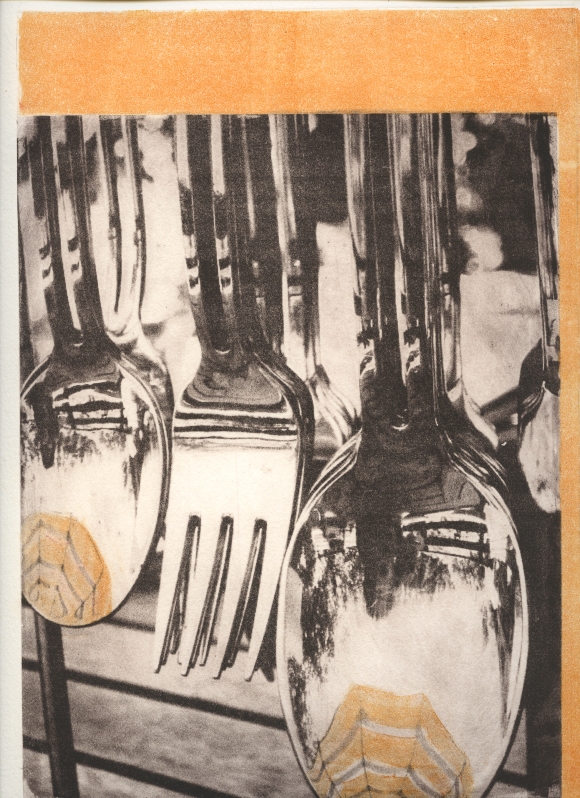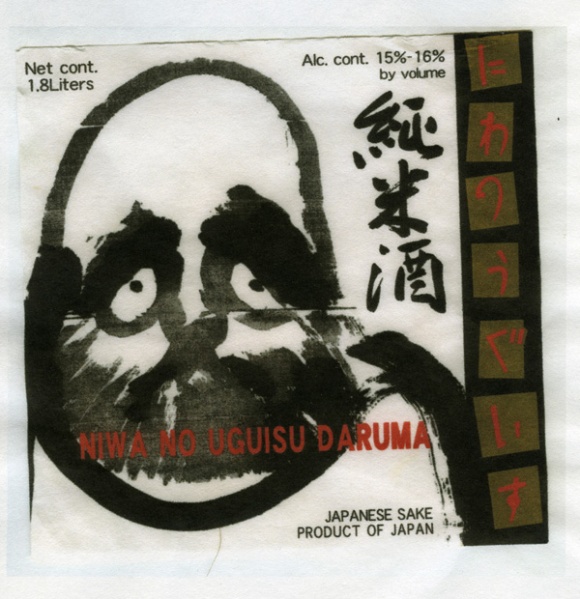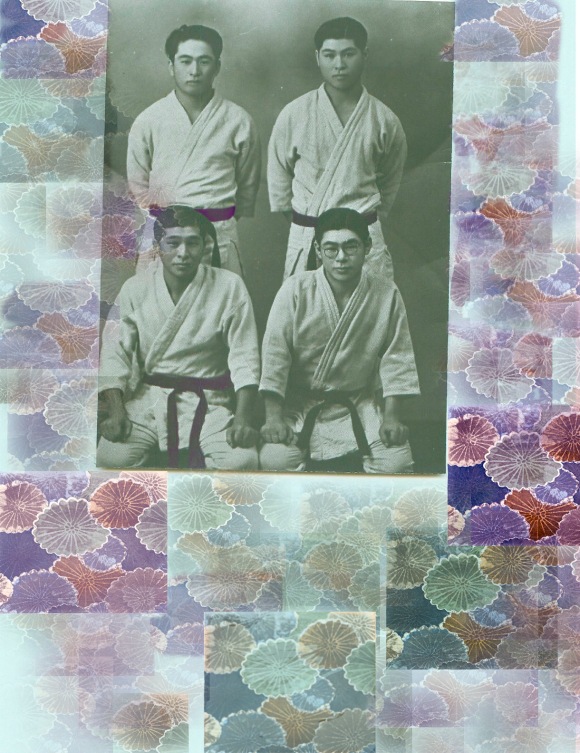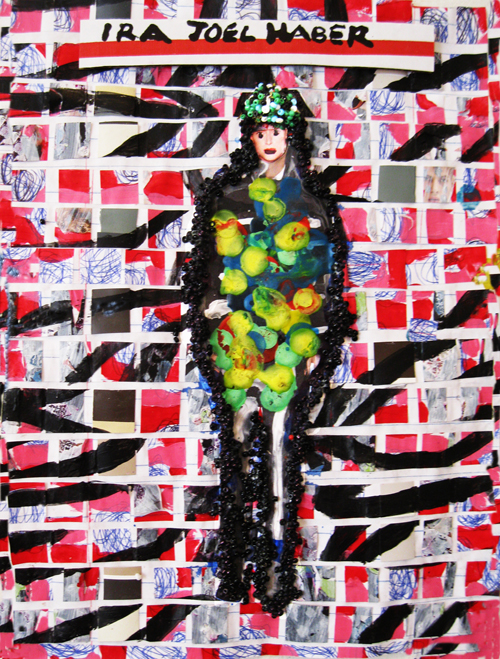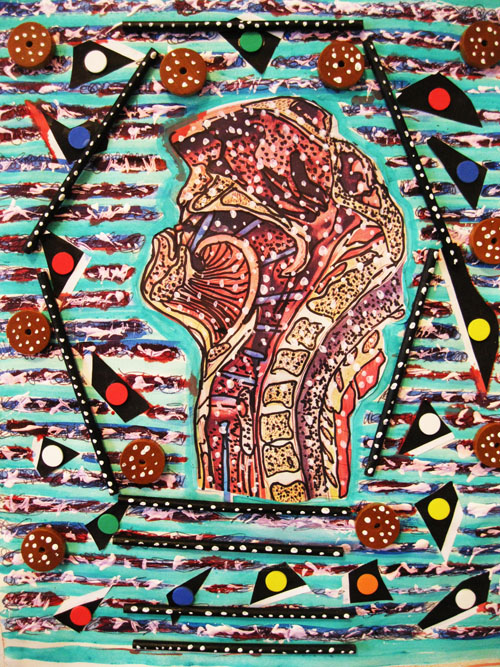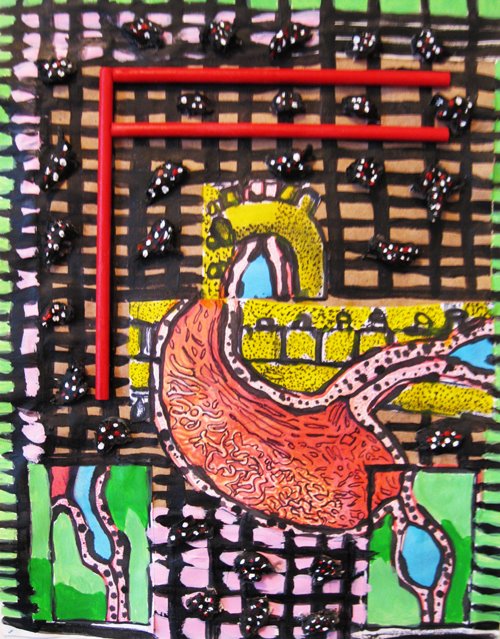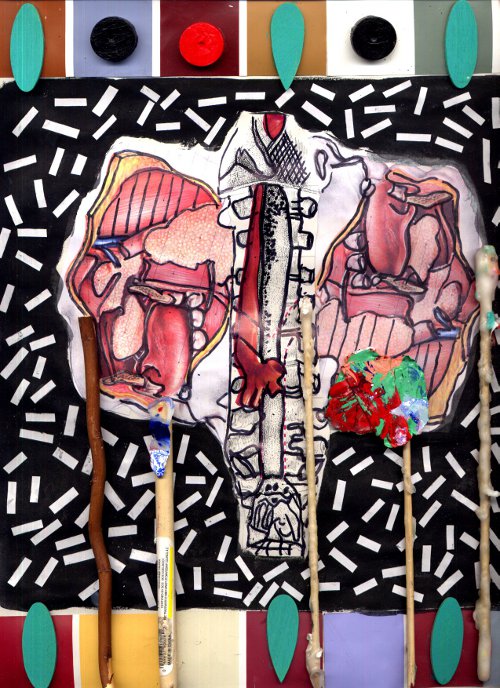The Wall
Everything I know
clamours inside,
shouts not to,
even so, here I am
leaning out a little
looking down.
Don’t look down
he says, look ahead.
So I do
seeing a black roof,
sloped tiles,
the wide gap.
My heart decides
before I do.
Naming
Even now a wood has faint echoes.
The stars whistle words
that tell the trees their names.
So it is with a child. A life begins to form.
Everyone falls to listening. The mother tunes herself,
trying to hear a name.
When her baby is born, the stars call.
The stars do everything they can to be heard.
Some of us have corked ears,
we answer only to family voices.
Children struggle misnamed,
carry leaden coats for years.
Who has not sung in their bed at night,
found their true name, hugged its secret,
watched it flit away with the morning?
You Don’t Need to Wear a Fish Head to Feel Weird
Now my skin colours itself,
like that on rice pudding,
I get this nutmeg feeling,
turn my unnecessary attention
to a rust patch on the wall.
I stay up all night, drink
till I throw up. Whatever.
No one minds. At least my eyes
aren’t too small to see, at least
I know I’m not a swan.
I know what’s happening;
transversal disintegration. Yeah.
I’ve done this before, but then
it was cool. Just get in the swing.
Before you know it, you’re humming.
This time it’s like light chains
looped right round. No sweat.
Identities crack through
to other stuff always there.
You don’t have to see straight all the time.
No need to worry, honey.
What slips away was never meant
to stay. Honey.
Notice my eyelash still curves,
doing what it should.
A Close Call
The skinny, angelic girl told me
she saw a bear come out
of its cave in Bavaria
one frosty morning
when the sky was egg-blue,
but the air dazzled with white
and although she made the mistake
of introducing it to Damien Hirst,
who talked excitedly on his mobile,
it dealt with the matter quickly
by ripping his heart out
with a sharp pointed bear nail.
By Rose Cook
Rose Cook’s Notes From a Bright Field is ‘a single quiet path, in and out’, capturing the transitory beauties of the everyday: a mother’s ashes imagined as ‘Lux flakes’; the ‘fruit-gummed glass’ of a cathedral. Where the poems’ themes are of nature, loss and the spiritual, these are grounded in concrete imagery like ‘the clack-clack of the shell and the bones’.
‘In their transparency and deceptive simplicity Rose Cook’s poems reveal pure and hidden depths in nature, memory and loss, celebrating and questioning the fragility of everyday interactions. These are indeed poems for people ‘who juggle [their] lives’, insisting in their gratitude that we ‘be still sometimes’. To read Notes From a Bright Field is to be renewed in body, mind and spirit.’ – Anthony Wilson
‘Rose Cook’s poems are often poignant, reflecting the many variables of ordinary lives, but always with a lightness of touch, an acceptance of what it is to be human.A collection fluid and sincere, the poems are wide ranging, sometimes painterly, sometimes with a wonderful down-to-earth diction and a singular inwardness that delights.’ – Denise McSheehy
Notes from a Bright Field costs £8.00 plus £2.00 p&p, £16.00 for two copies (p&p free) available from Cultured Llama
